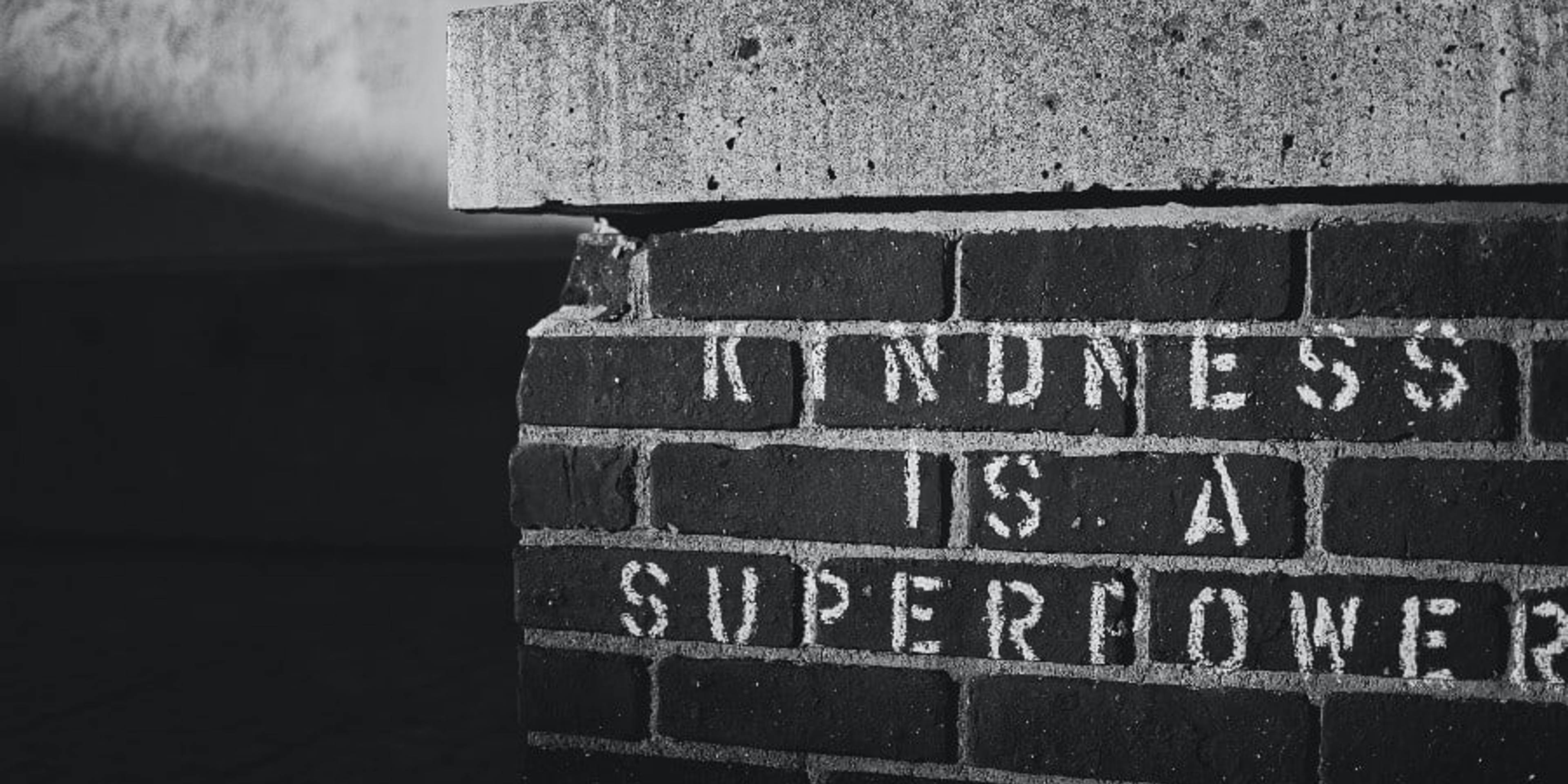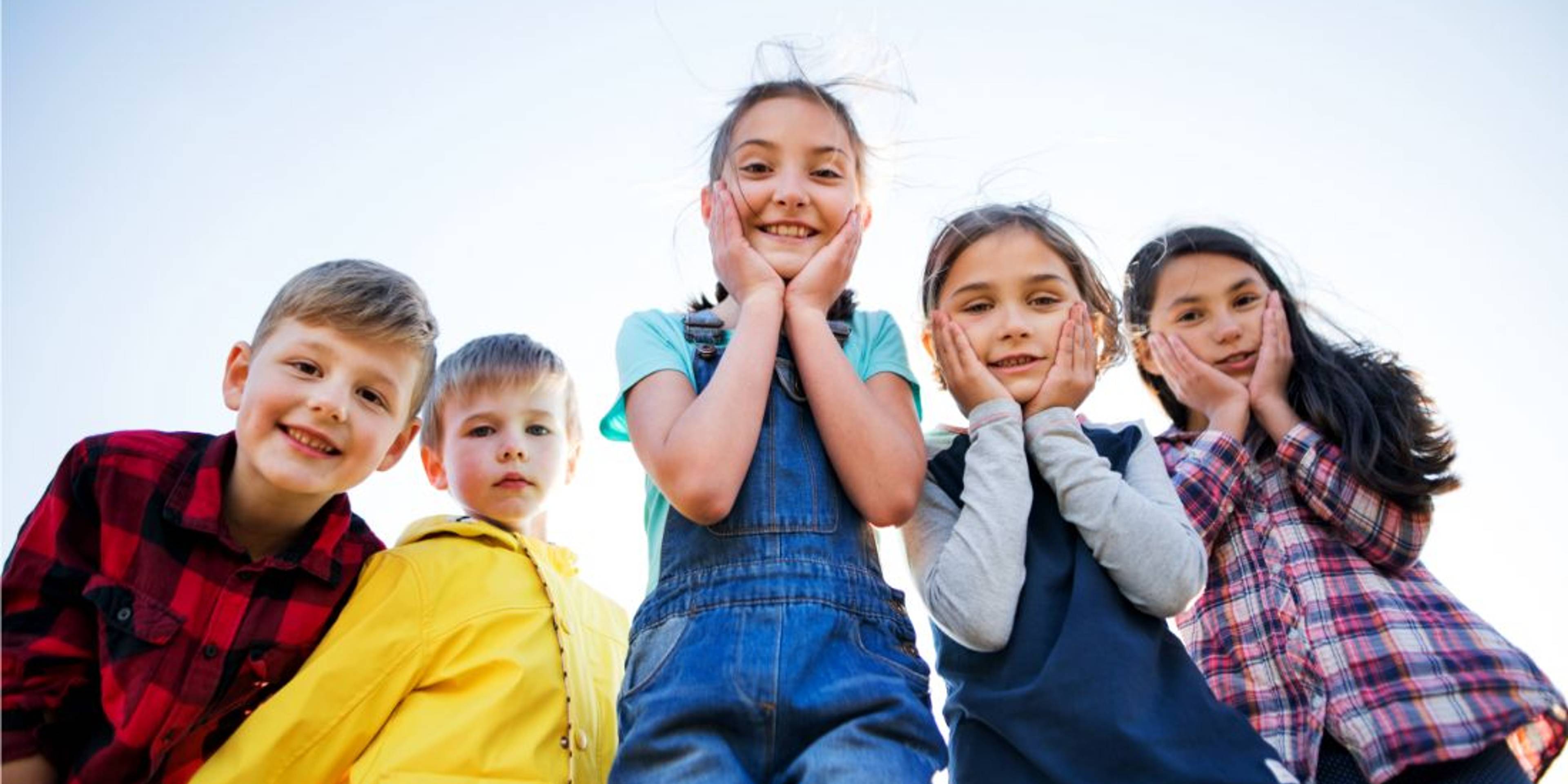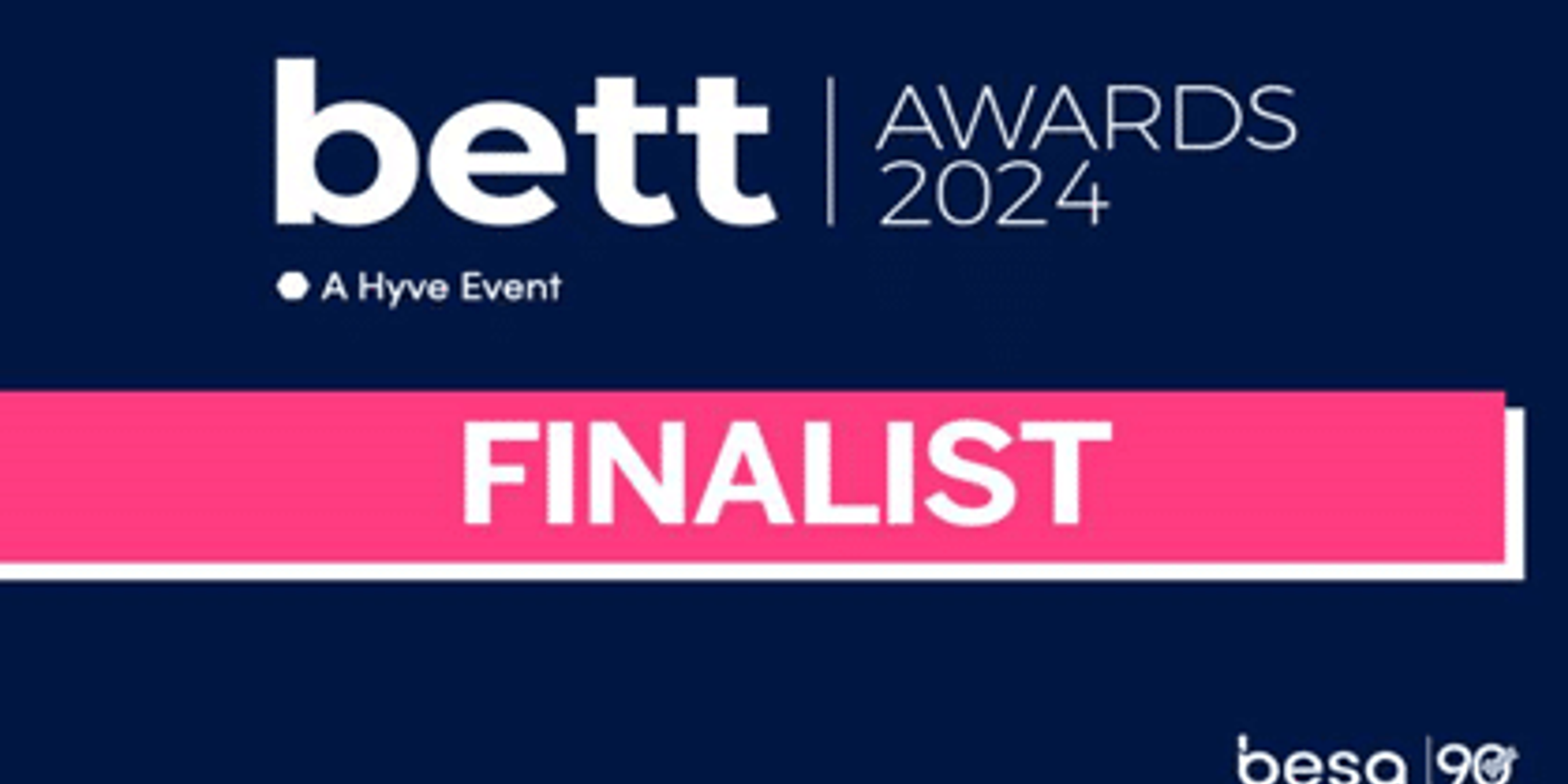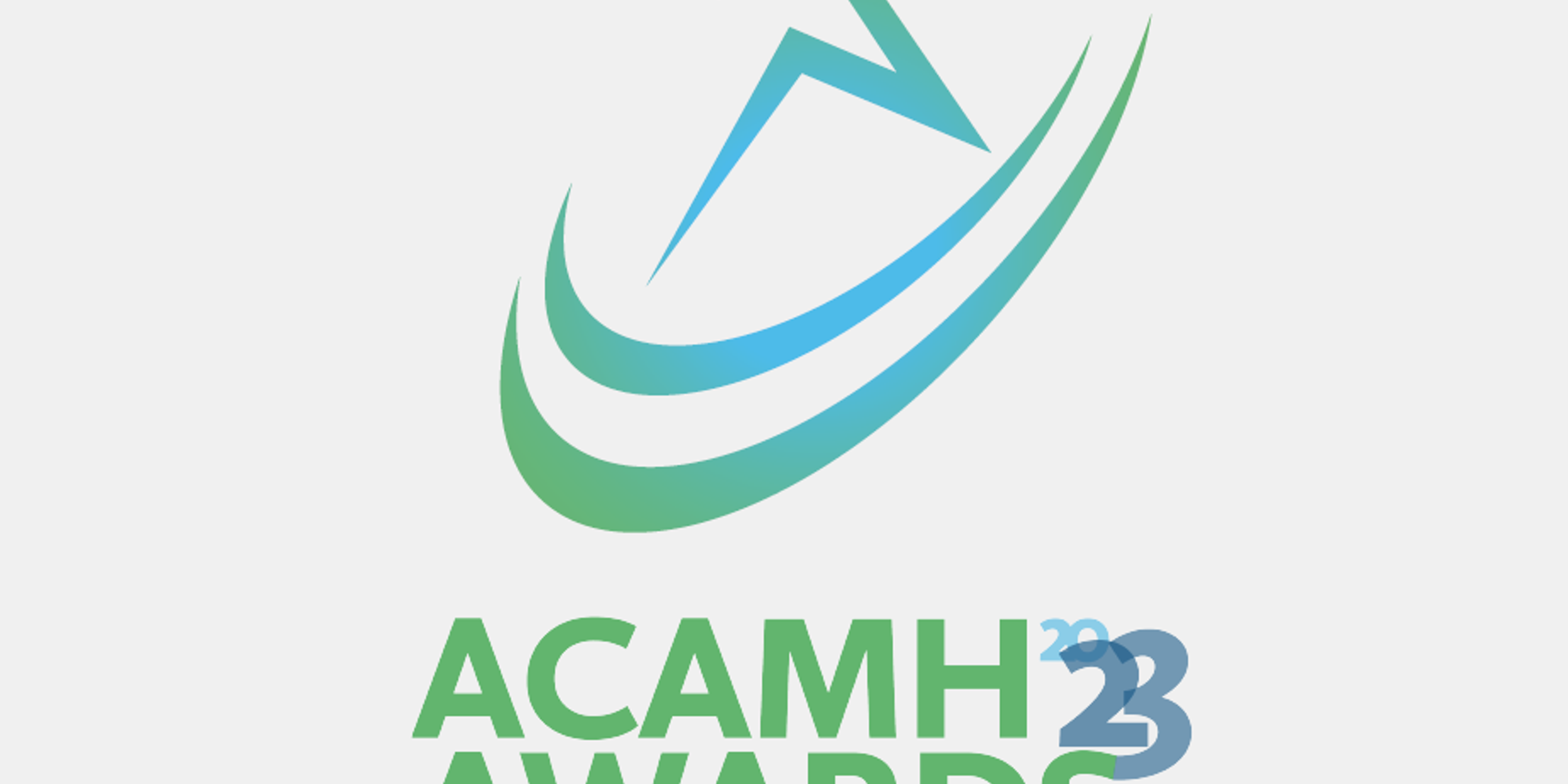
Given that World Kindness Day was celebrated earlier this month, now seems a good time to talk about the results of a very large and exciting public science project; the world’s largest in-depth study on kindness to date. The Kindness Test was commissioned by BBC Radio 4 in conjunction with a team from the University of Sussex, led by our brilliant former podcast guest, Professor Robin Banerjee.
A whopping 60,000 people aged 18-99, from 144 different countries, filled out a detailed online questionnaire. It aimed to explore different people’s attitudes towards and experiences of kindness and how these might relate to health and wellbeing. The questionnaire sought to establish the most common kind acts, barriers to behaving more kindly, levels of kindness in the workplace and how kindness is connected with compassion, empathy and our value systems. BBC Radio 4 broadcaster and Visiting Professor of the Public Understanding of Psychology at the University of Sussex, Claudia Hammond, worked on the project and presented its findings on Radio 4 earlier this year.
Even before this study, we already knew that kindness has far-reaching psychological and social consequences.
There was already a solid evidence base showing that practising kindness has a positive impact on our mental health, as well as educational and interpersonal benefits. Research has shown that kindness is linked to higher levels of life satisfaction, positive emotions and subjective happiness. Studies show that kindness in children can facilitate better educational processes and outcomes and is positively linked to behavioural, academic and emotional motivation, and engagement at school.
So, what did The Kindness Test add? We’ve outlined the key findings:
1. Kindness is everywhere.
Despite the doom, gloom and negativity that pervades the news, we should take heart in the fact that kindness is extremely common in people of all ages and locations. Three-quarters of respondents said that they received kindness from friends or family either ‘quite often’ or ‘nearly all the time’. 16% of people said that someone had been kind to them within the last hour, and a further 43% said that they had received kindness within the last day. Two-thirds of people in the UK thought that the pandemic made us kinder. Interestingly, only just over one-third of American respondents thought the same.
2. Everyday kindnesses, whether or not we know the person, are meaningful.
Kindness comes in many forms and, more often than not, is not about big gestures. Making a friend or loved one a cup of tea, holding the door open for another person, picking something up off the floor for a stranger, or smiling at someone in the street, all make a difference. Respondents reported that most acts of kindness take place at home, followed by medical settings, the workplace, green spaces and shops. Fewer kind acts were seen online, on public transport or in the street. The study actually showed that the more we talk to people who we don’t know, the more kindness we receive, and the more kindness we notice going on around us. The most commonly reported act of kindness was helping people when they asked.
3. The main barrier to kindness is a concern that the act could be misinterpreted.
According to Professor Banerjee, this worry (reported by 66% of people) isn’t actually well-founded, and any opportunities to be kind should be seized. 57% of people said that they didn’t have as much time as they’d like to be as kind and 52% reported that social media played a part in stopping them from being kinder. Sadly, 28% said that they felt kindness would be seen as a weakness.
4. Women, religious and older people tend to carry out more acts of kindness.
Interestingly, women reported seeing kindness, receiving kindness and being kind, more frequently than men. Religious people and older people also said that they donated more of their money and time to charity. Interestingly, people’s level of earnings had no correlation with reports of generosity. When asked what they’d do with an unexpected windfall of £850, people on the lowest incomes and the highest incomes both tended to say they’d give away the least.
5. Personality type impacts on how much kindness we give and receive.
The Kindness Test included a personality scale. The kindest people were also more likely to be extroverted, agreeable and open. It’s important to note though that these results are averages. Individuals who are quiet, or who aren’t keen on new experiences, can still be very kind!
6. Kindness is linked to wellbeing.
This comes as no surprise to us, but The Kindness Test provides more evidence. Being kind, noticing kindness and receiving kindness all impact positively on our wellbeing, making us feel good.
If you are interested to find out more about the results of The Kindness Test, Claudia Hammond’s new book, The Keys to Kindness: How to be Kinder to Yourself, Others and the World, is out now.
At Tooled Up, we were already convinced of the benefits of kindness. That’s why our resource library already features a whole section of resources devoted to promoting kindness, including interviews with leading researchers in this field, family fundraising ideas, a 100 acts of kindness activity (which includes prompts for kindness online) and a list of books that can help to cultivate kindness and empathy. Tooled Up subscribers can access all of them now!
If your school or organisation doesn’t currently subscribe to Tooled Up, but you’d like to, please get in touch.
More News

Dec 17, 2025
Supporting Healthier Masculinities with Professor Michael Flood
We’re excited to be working with Professor Michael Flood, one of the world’s leading researchers on men, masculinities, gender equality and violence prevention.

Jun 19, 2025
Tooled Up Education to Collaborate with Researchers from the University of Manchester
Tooled Up Education is excited to announce we will be collaborating as a research partner with researchers from the University of Manchester.

Mar 17, 2025
Netflix's Adolescence: related resources in Tooled Up
Have you watched Adolescence on Netflix? Do you want to learn more about the issues raised? We have webinars and podcasts available to everyone, along with CPD and classroom resources available to Tooled Up teachers.

Oct 10, 2024
Tooled Up supports Bank of Ireland's 'Wild Child' campaign
Here at Tooled Up, we are really excited about our ongoing partnership with Bank of Ireland and we're very proud to have worked on a two-month long initiative aimed at supporting Bank of Ireland employees and their families. The ‘Wild Child’ campaign was a weekly digest delivered directly to BOI staff through August and September 2024, offering a range of resources, tools and support and for staff and their families.

Sep 09, 2024
Have smartphones and social media led to an anxious generation?
In this analysis, Dr Margarita Panayiotou, Senior Lecturer in Quantitative Methods in the Institute of Education at The University of Manchester, goes beyond the headlines to consider what the evidence really shows about the impact of smartphones on young people's mental health.

Apr 30, 2024
Sextortion: what is it and why is it in the news?
The National Crime Agency has issued an alert to UK teachers following an increase in sextortion: a type of online blackmail in which the offender threatens to release nude or intimate photos of the victim.

Mar 08, 2024
#InspireInclusion: Celebrating International Women’s Day
You are probably already aware that it’s International Women’s Day today. This year’s theme is #InspireInclusion and the event focuses on celebrating women’s achievements, raising awareness about discrimination and taking action to drive gender parity. Working as part of a small (but growing) team of fantastic women (and men), these are things that we are passionate about at Tooled Up, and we have plenty of resources for the Tooled Up community which will help to break down stereotypes and recognise the successes of some remarkable women.

Nov 17, 2023
Tooled Up Education – 2024 BETT Awards Finalist
We are delighted to announce the exciting news that Tooled Up Education has been shortlisted as a finalist for the 2024 BETT Innovation Award.

Sep 27, 2023
Tooled Up Education Joins Forces with ISEB to Champion Pupil Wellbeing in Admissions Tests and Exams
We are really excited to launch the Parent Power Toolkit, a new set of resources that we’ve produced for The Independent Schools Examination Board (ISEB), which are all designed to empower parents to support their children’s mental health and wellbeing throughout their admissions test journeys and equip families with the tools needed to help children navigate change.

Jul 07, 2023
Tooled Up’s Head of Research Nominated for ACAMH 2023 Award
Exciting news! It seems apt that in the same week as Research Appreciation Day, our very own Dr Hope Christie has been nominated for the prestigious Eric Taylor ‘Translational Research into Practice’ award. This award recognises individuals with a sustained contribution to translating research into practice over a number of years, whose work involves both research and involvement in either clinical or educational practice.